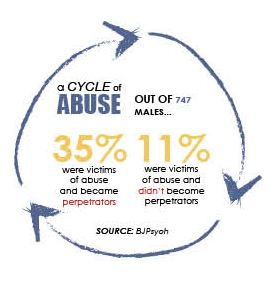Reaching out to child victims of crime

March 20, 2018
Recently The Criminal Justice Division of the Office of the Governor gave AISD a $4.48 million grant to build on-campus mental health support centers for children who are victims of crime.
This grant affects 22 elementary school campuses in AISD. Each campus will be supplied with two staff members to help children and their families who have been victimized cope through therapeutic methods.
“The first three years are the most critical in a child’s brain development,” child development teacher Laura Barnes said. “And toxic stress can impair that brain development. And that’s why this is such a wonderful program because it will counterbalance whatever has been going on, or seek to help it.”
The funding for this program came from the federal Victims of Crime Assistance Act of 1984. These funds are monitored by the Governor’s office. They are meant to specifically aid Texas children who undergo any acts of violence or crime in their home-life.
“I definitely think that we will see a difference,” child development teacher Jean Frazier said. “I mean if they have made attempts to treat them at an early age, then we may not see some of the damage that we’re seeing today.”
The grant applies to elementary schools in East Austin, where the crime rate is high, the transportation is lacking and language barriers prevent families from receiving the proper help.
“It will be way better to get help in elementary as opposed to waiting and not getting help until high school or adults,” nutrition teacher Kelly Langdon said.
According to ChildTrends.org, children who are victims of crime and don’t get the help they need, are at higher risks for academic and cognitive problems, delinquency, and involvement in juvenile justice systems.
“Kids come with such baggage, we all come with baggage,” Frazier said. “You know, now they can go through and begin addressing and getting help.”
When a child is continually exposed to violence, it begins affecting the developing of their brain, according to the National Scientific Council on the Developing Child. Fundamental functions, such as memory, focusing attention, impulse control and decision-making become impaired.
“Everyone handles it differently,” Langdon said. “Everyone handles abuse differently. It affects them in some way, shape or form that how you would handle it would be different from how I would handle it.”
A study conducted by the National Center for Victims of Crime found that out of the children who reported abuse, 42% of school officials knew about it and reported it, when compared to medical professionals and police officers.
“We are, by law, required, all teachers, elementary through high school, to report any suspicious child abuse,” Barnes said. “So we’re kind of on the front line, as are preschool teachers.”
Under Texas law, any suspicion of child abuse under good reason must be reported. The teachers are protected when reporting and it is a part of their training to detect questionable behaviour among students.
“Teachers stay teachers,” Frazier said. “We can get in trouble if we think we see something or even know those children have been abused and we don’t report it. We can come under the gun.”
Not only does exposure and victimization of crime lead to an issue for developing the brain, but it also increases the risk that the child will become a perpetrator in the future, according to the Center for Disease Control and Prevention.
“Kids that are abused at a young life tend to abuse their children, that is fact,” Frazier said. “If we can get that abuse to be snubbed out earlier, they can reprogram those kids to think on a little bit of a different level.”
Students who seek help can find it at the Center for Child Protection, which is specific to Travis County. Their focus is to provide aid and support to children who have undergone abuse.
“If they don’t want to go through the school, there is a Center for Child Protection,” Frazier said. “It’s an Austin-based organization. Travis County only. It has support for the family and it does not cost a penny.”
The child development teachers teach the effects of child abuse and exposure to crime. They are a tool in providing awareness for this issue.
“We all cover child abuse, and we cover a lot of things, but it’s not where you start, you can’t do anything with your past, you can only control your future and you have a fresh start everyday,” Barnes said. “Make good choices, but be positive about it.”










